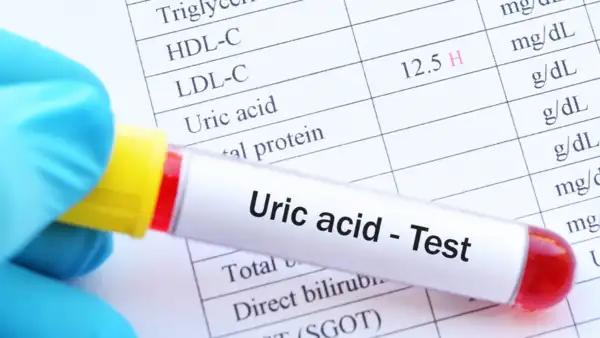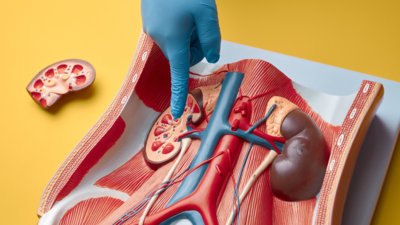
Elevated uric acid levels in the blood are referred to as high uric acid, or hyperuricemia. Kidney stones and gout are only two of the health issues that may result from this. Purines, which are present in some foods like red meat and seafood, are broken down by your body to form uric acid, a waste product. High uric acid may not cause kidney cancer. However, uric acid is a contributory factor for kidney disease. While it is not directly causally related to kidney disease, per se, like diabetes and hypertension, which are known causes of kidney disease. On the other hand, any kidney disease will raise the uric acid level in the blood and vice versa.
How dangerous is high uric acid?
Dr. Upal Sengupta, Director, Nephrology, Fortis Anandapur, Kolkata says, “There are few instances where the body will have a very high level of uric acid, and that may cause transient acute kidney failure. These scenarios are not very common and are like when the highest level of uric acid is seen in somebody who is suffering from a solid organ malignancy after chemotherapy or a hematological blood malignancy after chemotherapy when the cells break down. All the cells will have a high amount of nucleic acid and uric acid. Hence, the uric acid is generated by the breakdown of cells. This high load of uric acid gets deposited in the kidney, which is sometimes known as urate nephropathy, which is a cause of acute kidney failure, which is an oncological malignancy and is usually seen in cancer patients. Uric acid causes acute kidney failure in solid organs as well as hematological malignancy.”
Kidney stones
Other than that, a very high level of uric acid is a contributory factor for kidney stones as well, especially for diabetic patients. There are major instances where the stones are formed of uric acid. Even if the blood levels are normal, we get uric acid stones, and the formation of the uric acid stones, if it goes unnoticed for a long period of time, can lead to kidney failure. This is one of the common factors for diabetic patients.

Kidney failure
Additionally, if one has a very high level of uric acid in the presence of a kidney disease, it’s been seen to quicken the progress of the kidney failure, even if not being directly contributory to the cause of the kidney failure.
Gout
Gout is a well-known medical condition caused by elevated levels of uric acid in the blood, leading to the deposition of uric acid crystals in joints. This often results in severe joint pain and inflammation. Gout is especially common among individuals with kidney disease, diabetes, or those who consume high amounts of purine-rich foods such as organ meats. In many cases, patients rely heavily on painkillers to manage the discomfort, which can further damage kidney function and potentially lead to kidney failure.
May cause cancer
Emerging research by NIH suggests a possible link between elevated uric acid levels and certain types of cancer, particularly in women. While data is not yet conclusive, some studies indicate that high uric acid may be associated with an increased risk of breast cancer and kidney cancer—specifically in women. Additionally, there are indications that uric acid could play a role in the development of urinary tract cancers in female patients. However, more robust, gender-specific research is needed to confirm these findings and understand the underlying mechanisms.








